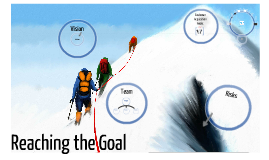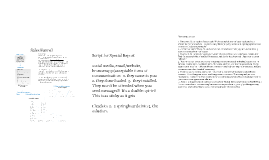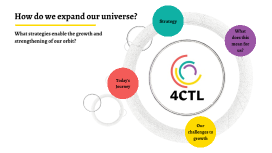funnel
Transcript: Introduction to the Marketing Funnel Stages of the Marketing Funnel What is the Marketing Funnel? Why is the Marketing Funnel Important? Consideration Interest Awareness The marketing funnel is a model that illustrates the customer journey, consisting of distinct stages: awareness, interest, consideration, intent, evaluation, and purchase. This structured approach helps businesses guide prospects through their decision-making processes. Understanding the marketing funnel is crucial for businesses to optimize marketing strategies, improve customer engagement, and increase conversion rates. It helps identify customer touchpoints and align marketing efforts across different stages. In the consideration stage, customers compare options and evaluate products. Detailed product descriptions, comparisons, and testimonials are vital to solidify a positive perception of your brand. During the interest stage, consumers express curiosity about products or services after the initial awareness. Content marketing, informative blogs, and enticing visuals play a key role in sustaining interest. In the awareness stage, potential customers first encounter your brand through advertising, social media, or word-of-mouth. Engaging content that highlights brand value is crucial for capturing attention. Evaluation Purchase Intent Overview of Funnel Stages In the evaluation stage, consumers weigh pros and cons before making a final decision. Providing clear value propositions and addressing objections through FAQs can greatly influence their choice. The purchase stage is where the consumer completes the transaction. Streamlining the checkout process and ensuring a positive experience can help reduce cart abandonment rates and enhance customer satisfaction. The intent stage marks a decisive moment where potential buyers demonstrate a willingness to purchase. Cart additions or wishlist creations are indicators of this intent, signaling readiness to convert. The funnel encompasses several stages: awareness introduces potential customers to a brand; interest piques their curiosity; consideration evaluates options; intent signifies a buying signal; evaluation compares choices; and finally, purchase is the conversion point. Strategies for Each Stage of the Marketing Funnel Measuring Funnel Effectiveness Strategies for Generating Interest Tools for Tracking Funnel Progress Tactics for Awareness Analyzing Conversion Rates Nurturing Consideration Key Performance Indicators (KPIs) Many tools are available to track funnel progress, including Google Analytics, HubSpot, and Salesforce. These platforms provide insights into user behavior and funnel performance, allowing for better data-driven decisions. Create informative content, such as blogs and videos, that showcases solutions to customer pain points. Implement email marketing campaigns with targeted messaging to capture leads' attention effectively. Use retargeting ads and personalized email campaigns to provide further information. Highlight customer testimonials and case studies to build trust and influence decision-making during this stage. KPIs are essential metrics that gauge the performance of each funnel stage. Common KPIs include traffic, engagement rates, lead conversion rates, and sales volume, helping to identify areas for improvement. Utilize social media platforms, content marketing, and SEO to reach potential customers. Engage audiences with compelling messaging that highlights brand missions and values, increasing visibility and reach. Conversion rates indicate the effectiveness of each stage within the funnel. By analyzing these rates, marketers can assess how well they are moving leads through the funnel and where improvements are needed. Optimizing Funnel Performance Closing the Purchase Case Studies on Successful Funnels Encouraging Intent Influencing Evaluation Simplify the checkout process to reduce friction and enhance user experience. Engage with leads actively through follow-up emails and personalized messages to encourage completion of their purchase. Optimization involves identifying bottlenecks and refining processes within the funnel. Techniques include A/B testing, targeted content, and enhancing user experiences to boost conversion rates. Provide comprehensive product comparisons and demos to assist leads in evaluating options. Use online reviews and ratings prominently to influence decision-making and alleviate hesitation. Analyzing case studies, such as McDonald's and Airbnb, reveals effective funnel strategies that resulted in increased conversions. These cases provide actionable insights for marketers looking to refine their own funnels. Implement offers and discounts for potential customers who are showing intent to purchase. Use lead scoring to prioritize leads and provide them with tailored content that addresses their specific needs. Understanding the Marketing Funnel Exploring Stages from Awareness to Conversion

















